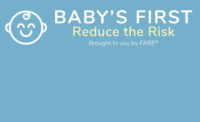FARE Partnership
Food Allergy Research & Education announced a new partnership with ResearchMatch, a national online patient registry maintained by Vanderbilt University.

Clinical trials are an essential part of understanding whether treatments under investigation can be effective, and successful completion of these trials is required in order to make promising therapies available to patients. A significant barrier to the completion of clinical trials is the lack of timely patient participation and restrictions that are placed on patient recruitment.
ResearchMatch was created to help streamline patient recruitment and successfully enroll trials. FARE and ResearchMatch have teamed to create a special sub-registry for patients with food allergies that will help investigators at institutions across the country more quickly identify candidates for participation in food allergy clinical trials. Signing up as a volunteer on ResearchMatch is simple and free, and does not place individuals or families under any obligation to participate.
“Food allergy is a potentially life-threatening disease and a growing public health issue. As we work to support the development of treatments that will save lives, it is critical that clinical trials studying treatments for food allergy move forward as quickly as possible,” said John L. Lehr, CEO of FARE. “We are pleased to be partnering with ResearchMatch to offer a new, easier way for families and researchers to connect about clinical trials, which ultimately will allow us to make effective treatments available sooner to the broader food allergy community.”
Members of FARE’s Medical Advisory Board were involved in developing the sub-registry on food allergy. FARE-funded researchers and others will use the sub-registry to recruit patients as new studies become approved.
“As a researcher and a member of FARE’s Medical Advisory Board, I was excited by the opportunity to help create the ResearchMatch food allergy sub-registry,” said Scott H. Sicherer, M.D., professor of Pediatrics and a researcher in the Jaffe Food Allergy Institute at the Icahn School of Medicine at Mount Sinai, New York. “This is an urgently needed tool, since the next few years will bring a great increase in the number of food allergy studies. Families and researchers alike can participate with confidence, knowing that they have found an authoritative, secure online resource for clinical trial recruitment.”
Once their studies are approved, researchers can search the database for possible matches, using data that does not include volunteers’ personal information. Potential volunteers receive an initial email through ResearchMatch and can choose whether to be contacted by the recruiter so they can learn more.
“Getting the right individuals at the right times into the right studies is one of the most difficult pieces of the research puzzle. One of the challenges in conducting research in the field of food allergy is difficulty in connecting affected individuals with researchers,” said Kathy Edson, ResearchMatch program manager. “The food allergy sub-registry will enhance the precision and prescreening process for matching volunteers and research teams. The ResearchMatch team is looking forward to continued partnerships with FARE, researchers, volunteers, and stakeholders as we work together to make a difference in today’s patient-centered research.”
Looking for a reprint of this article?
From high-res PDFs to custom plaques, order your copy today!




